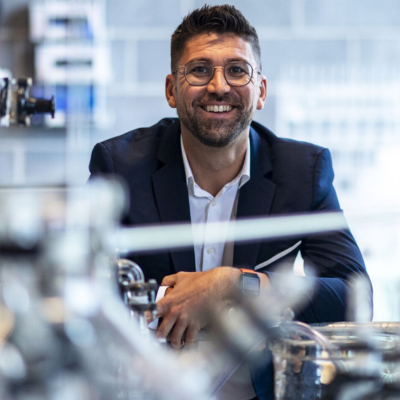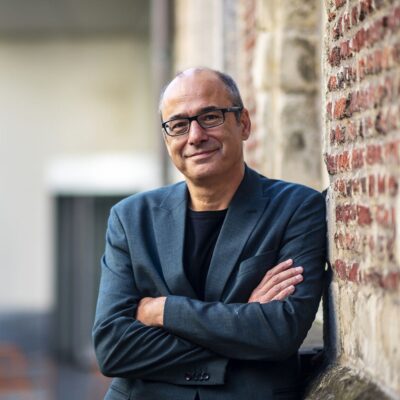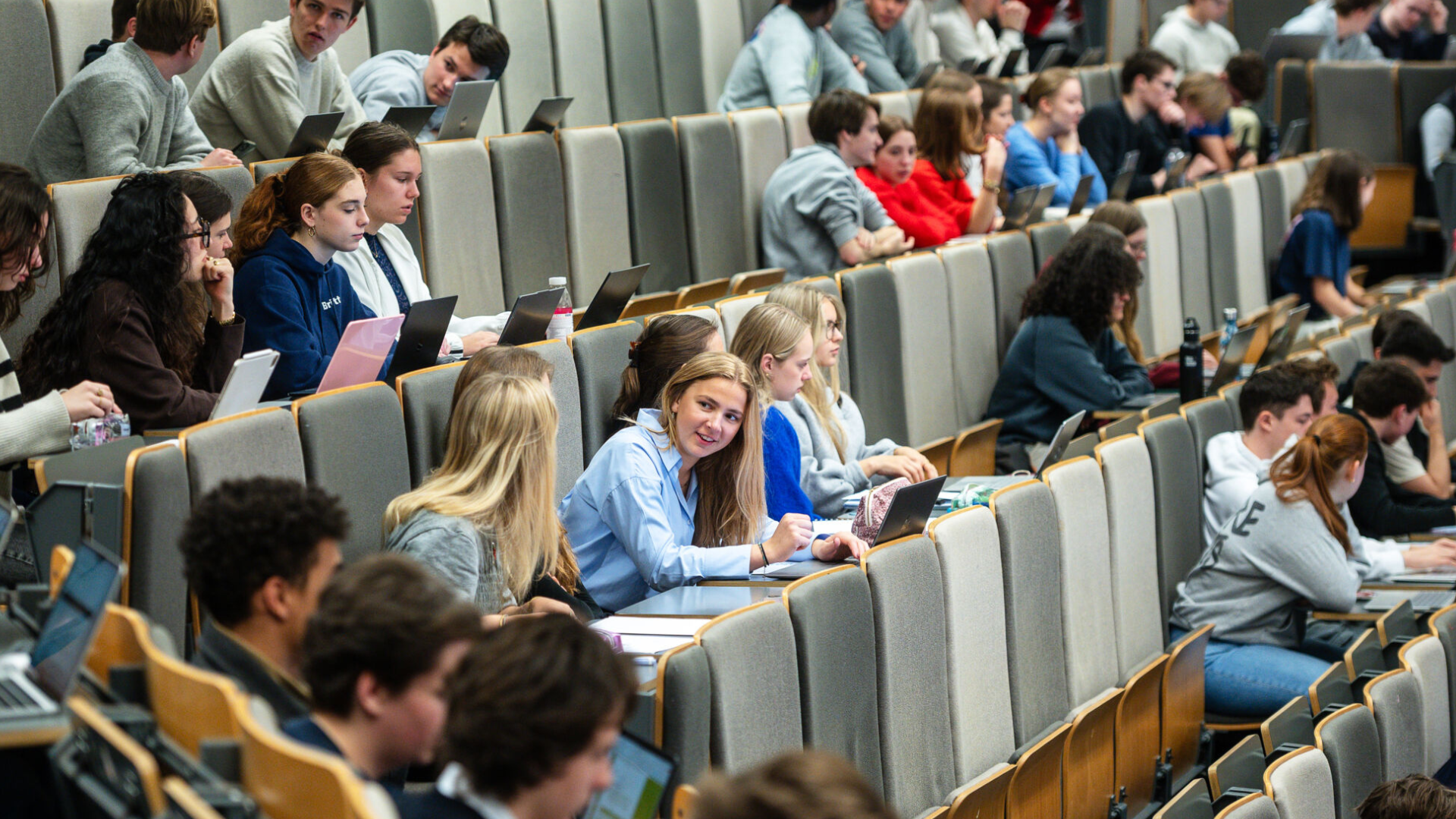For the third year in a row, the number of first-year students at our university has risen. By 16 September, the total had already reached 3,405 new students, a 7.6% increase on last year. And enrolments are still coming in. Here’s an overview of the most notable figures.
There’s an increase across the board: a whopping eight of our nine faculties are welcoming more new students and quite a few programmes are on the rise.
Economic fields of study picking up
The largest percentage increase can be seen at the Faculty of Business and Economics, which has recorded a growth of 18.4%. The standout is the Bachelor of Business Engineering, with an increase of no less than 60.8%.

‘It’s always difficult to come up with an exact explanation. Developments on the geopolitical front may play a role. The importance of sound economic policy and effective management is receiving due attention in society.’
– Ann De Schepper, dean Faculty of Business and Economics
Strong growth in applied engineering
The Faculty of Applied Engineering is also doing well: it’s currently boasting a growth of 17.2%. The programmes with the largest increases are Civil Engineering (+23.9%) and Electromechanical Engineering (+27.9%).

‘Electromechanical engineering is growing for the third year in a row, now enrolling a record number of new students.’
– Tom Breugelmans, dean Faculty of Applied Engineering
Medicine, pharmacy and humanities on the rise
Spread across our other faculties, there are quite a few other programmes that are showing a considerable increase. Pharmaceutical Sciences – traditionally a large programme – shows a growth of 33.9%, for example. Medicine is also firmly on the rise: +21.5%.
The growth is certainly not limited to the medical sciences, as several programmes in the humanities are also making impressive gains: Philosophy (+43.8%), History (+25%), and Political Science (+23.3%).
Enrolment down in Interior Architecture, Physics and Computer Science
Not all the trends are upward. Interior architecture (-16.8%) is one of the programmes recording fewer enrolments, although that figure is compensated by the doubled intake in the bridging programme, for students who first obtained a professional bachelor’s degree. Physics (-35.5%) and Sociology (-16.7%) are also seeing declines. These are, however, smaller programmes, where a few late enrolments could still affect the figures.
The most striking drop is perhaps in the Bachelor of Computer Science (-34.3%), a remarkable trend given current developments in artificial intelligence. Related programmes such as Linguistics and Literary Studies and Applied Linguistics, however, are holding steady despite the AI gloom.

‘Young people realise that these programmes offer more than language skills alone. They also learn to work with AI, to understand cultural contexts, and to critically assess AI output.’
– Arthur Cools, dean Faculty of Arts
Teacher training programmes continue to grow
This academic year, for the first time, we’re offering the Master of Primary Education. For now, 17 students have enrolled. The bridging programme already has 38 applications. The abridged masters in teaching also continue to be on the rise: +10% compared to last year.
The programme that has grown the most? The Master of Teaching in Sciences and Technology, which has doubled its intake.
New Bachelor’s programme immediately claims its spot
The new Bachelor’s programme in Urban Sustainability Studies also had a strong start. In its very first academic year, no fewer than 22 first-time students enrolled. This clearly shows that topics such as sustainability and urban development resonate with younger generations.
Outlook for a dynamic academic year
We’re preparing for the start of a promising academic year. With this broad intake across a wide range of fields, our university continues to grow and to strengthen its impact – in the city, the region, and beyond.
Save the date:
The official opening ceremony will take place on Thursday 25 September at Stadsschouwburg Antwerpen, in collaboration with our association partners.


